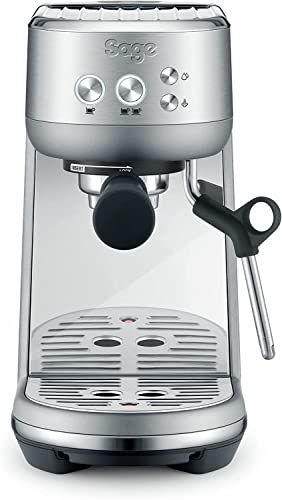How to Build a Professional Espresso Machine
This is a great choice for cafes and coffee shops that wish to attract customers who are enthralled by espresso and barista skills. It's an official machine for World Barista Championships, and it displays.
The barista is able to refill the reservoir with water throughout their shift. The machine comes with hot water for tea and cool-touch steam wands.
Water
A commercial espresso machine should be able to produce a huge amount of espresso-based drinks in a timely manner. That's why they are built with stainless steel which is more durable and resistant to breaks and scratches. Espresso machines are also easier to maintain and keep clean.
Additionally, a top quality machine will have a separate shut off valve for the water line to avoid the build-up of limescale. This will ensure that any repairs are limited to the affected components of the machine and will not interfere with the other operations.
When selecting the water you want to drink make sure you test it and treat it correctly to get the best results. Remineralize distilled water by adding a few minerals. It can enhance the taste and reduce its erosive characteristics, but could also cause damage to certain machines. The remineralized wate will make the boiler sensor believe that the machine is full, even though it isn't. This can lead to overheating and even damage to the machine.
Grinder
The grinder is a vital component of the success of an espresso machine. The grinder turns the raw, unground coffee bean into a finely-ground coffee that can be tamped properly into the filter basket to ensure an excellent extraction.
Professional-grade commercial machines include a grinder that can be programmed to accommodate different sizes of drinks. This guarantees consistent results every time. Super-automatic espresso machines take this one step further, automating and programming the entire process from brewing to grinding to dispensing. These types of machines are able to score high scores in Lab tests for their hands-off user-friendliness.
A manual or semi-automatic espresso machine requires more involvement from the barista, but the quality of the end result is often worth the effort. This model won an 2022 Good Housekeeping Coffee Award for its intelligent dosing system that weighs and dispenses the correct amount of ground coffee every time. It also has a low-pressure pre-infusion system for smooth extraction and a milk frothing wand that was a success in our test for producing rich, thick steaming milk.
Temperature
Temperature is a major element in espresso. If the water isn't in its ideal temperature, it can slow the extraction process and lead to an unpleasant cup of coffee.
Espresso machines of the highest quality come with tools that can help you keep the proper temperature of your water. One method for doing this is by utilizing PIDs, which monitors and adjusts the temperature of the water. Another method is using a double boiler system. espresso coffee maker allows you to use one boiler for steam and tea and the other one to heat water to the right temperature for brewing.
Carles explains that these systems can be beneficial for large companies as well as home-based baristas. They can aid novices create the perfect espresso shot since they maintain the exact temperature and prevent numerous variables that could affect the flavor quality. It can also make it easier for baristas with experience to get their espressos exactly how they want them.
Pressure
The amount of pressure an espresso machine uses is another factor that influences the quality of the coffee it produces. Many espresso drinkers notice that their beverages taste different based on the pressure used, even when all other variables remain the same.
In general, most commercial-grade machines use nine bars of pressure to make espresso. These machines are also more likely to be steam-driven than pumps-driven. Although higher-pressure machines are also available however, they require a group head that is more complex to handle the increased levels of pressure.
Although you might see espresso machines advertising 15 or even 18 bars of pressure, nine bars are generally regarded as the most reliable standard for producing consistently excellent espressos. These machines that are higher pressure tend to be more affordable and designed for home use.
To put 9 bar of pressure in perspective, it's over four times the amount of pressure that is exerted by the air in your car tire. The greater pressure a professional espresso maker can apply, then the better in bringing out the flavor of the coffee beans you love. It is worth investing in top-quality machines that produce the most effective results.
Barista Skills

Baristas must be able to take and process orders from customers quickly and accurately. This is particularly crucial during busy times in the coffee shop. Good customer service skills are crucial to build relationships with customers and boosting sales for the coffee shop. This can include recognizing regular customers, working effectively to resolve issues, and remaining positive and friend even in difficult situations.
Baristas frequently need to be skilled at multitasking, since they must take orders and operate a cash counter as well as communicate orders to coworkers, and answer telephone calls all at once. This ability allows customers to enjoy an enjoyable experience at the coffee shop by ensuring that orders get delivered quickly.
It is essential for baristas to have knowledge of the different styles of drinks that can be prepared by an espresso machine. Learn about the various types of espresso by reading about them, experimenting with them in person, or watching online videos. Many baristas find it helpful to attend classes offered by various organizations.
